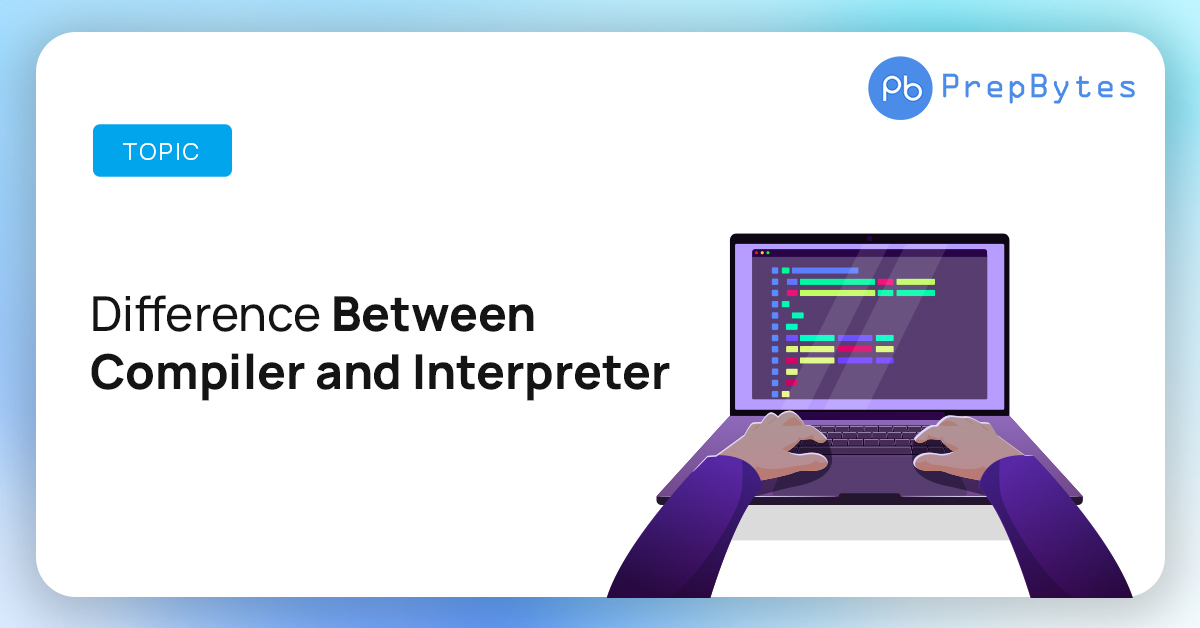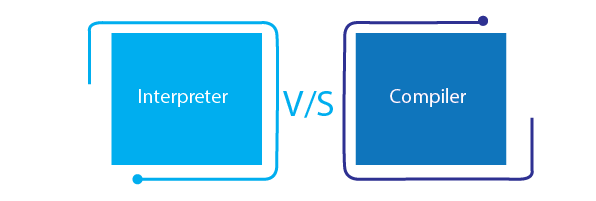Last Updated on September 22, 2023 by Mayank Dham

Compilers and interpreters constitute vital tools necessary for converting high-level language programs into machine-readable code, enabling computers to understand and execute them. However, distinctions exist between compilers and interpreters, and their operational mechanisms vary significantly. This article delves into the definitions of compilers and interpreters, while also highlighting the contrasts between these two integral components of programming.
What are Compilers?
Compilers serve as software applications adept at swiftly transforming programming languages into machine code, assembly language, or low-level languages. Each program undergoes conversion into binary code, represented by a sequence of 1s and 0s, which the computer can potentially interpret and execute to perform the tasks delineated by the code. Among its various functions, a compiler is obliged to align with the syntax of the specific computer language in use. Consequently, if a disparity arises between the program’s syntax and the compiler’s analysis, a programming error ensues, necessitating manual rectification.
Working of Compiler
A compiler’s primary job is to convert a program into machine code and alert the programmer to any issues, range restrictions, or other restrictions, particularly syntax ones. After a comprehensive examination of the entire program, machine code is produced. A compiler’s operation can be summarized by the following phases:
- Lexical analysis: Splitting of source code into an abstract fragment known as lexeme. Each lexeme has a unique token that indicates whether it is a keyword, a string, or another type of variable.
- Syntax Analysis: The allocated tokens are organized into an Abstract Syntax Tree (AST) and have their syntax validated.
- Semantic Analysis: Semantic mistakes such as assigning the incorrect variable, using an undeclared variable, using keywords as a variable, etc. are tested for in the AST.
- Intermediate Code Generation: Two or more intermediate code forms are produced during the compilation process.
- Optimization: The compilation process considers a variety of improvements that could be made to the work.
- Code generation: The compiler transforms the source program into an object program is transformed into an object program by the compiler, which also turns the intermediate optimized code into machine code.
Benefits of Compilers
The different advantages of compilers are:
- Programs are translated by compilers in a single step.
- The procedure goes more quickly.
- CPU utilization is higher.
- Both syntactic and semantic faults can be checked at the same time.
- It is easily supported by many high-level languages, such as C, C++, and Java.
Role of a Compiler
- It provides an executable code after reading the source code.
- Converts high-level programming code into a language that the CPU can understand.
- The procedure is somewhat complex, and the analysis takes time.
- Machine-specific binary code will include the executable code.
- The total run time is longer and takes up more memory.
What is an Interpreter?
A computer program known as an interpreter transforms program statements into machine code. Program statements comprise scripts, precompiled code, and source code. An interpreter interprets a program more quickly than a compiler ever could. Interpreters are especially helpful for beginners since they make dealing with source code simpler.
Performing Interpreter Work
Similar in function to a compiler, an interpreter functions similarly. The interpreter reads the program line by line while looking for mistakes and runs the program simultaneously in contrast, the compiler generates no intermediate code forms.
Benefits of Interpreters
The interpreter offers various advantages which can be summed up as follows:
- It is responsible for line-by-line translation of the program.
- The size of interpreters is smaller.
- Its strength is its versatility.
- The localization of errors is made easier.
- Interpreters are tools that simplify the use of computer programming language constructs and facilitate the execution of programs.
Role of an Interpreter
- Line by line, the interpreter translates program statements into machine code.
- Permits program modification while it is running.
- As it proceeds line by line, analysis takes comparatively less time.
- The program runs somewhat slowly because the analysis is done each time it is performed.
Difference Between Compiler and Interpreter

By translating programs into machine code, the Compiler and Interpreter appear to work similarly, but there is actually very little difference between the two. Here are the differences:
| Basis | Compiler | Interpreter |
|---|---|---|
| Analysis | Compiler analysis the entire program in one go. | The interpreter analysis the entire program line-by-line |
| Execution | Once the entire program is compiled, then the execution takes place. | The execution takes place line-by-line. |
| Machine Code | A compiler stores the machine code in the disk storage. | In an Interpreter, the machine code is not stored. |
| Run Time | As the compiler takes less time, then the compiled program runs faster and a compiler is much faster than an Interpreter. | As the Interpreter takes more time, therefore interpreter program runs slower. |
| Input | The entire program analysis by the compiler | Interpreter analysis line-by-line. |
| Output | The compiler gives intermediate code forms or object code. | The interpreter does not generate any intermediate code forms. |
| Memory Requirement | Target programs execute independently. They don’t require the Compiler in the memory. | The interpreter originally exists in the memory at the time of interpretation. |
| Optimization | The compiler reads the entire program and searches multiple times for a time-saving execution | No rigorous optimization takes place as code is evaluated line by line. |
| Use | It works best for the Production Environment. | It works best for the programming and development environment. |
Conclusion
In this article, we have discussed the step-by-step definition, working, benefits, and the difference between compiler and interpreter. We anticipate that you will learn more from this article. Interpreters and compilers both function similarly. The goal is to convert a programming language into a machine language, which operates nearly identically. But it operates differently. The language and the aim have an impact on how they are used.
Frequently Asked Questions (FAQs) about the Difference Between Compiler and Interpreter
Here are some FAQs related to the difference between Compiler and Interpreter:
1. Which is faster: a compiler or an interpreter?
Compilers generally produce faster-running code as they translate the entire program before execution. Interpreters, however, offer quicker feedback during the development process due to their line-by-line execution.
2. Can a single program use both a compiler and an interpreter?
Yes, some programming languages allow hybrid approaches where the program is compiled into an intermediate code and then executed by an interpreter. This can provide a balance between performance and development speed.
3. Is one approach better than the other?
The choice between using a compiler or an interpreter depends on various factors such as the nature of the project, development speed, performance requirements, and ease of debugging.
4. Do all programming languages use both compilers and interpreters?
Not all programming languages utilize both. Some languages are primarily compiled, while others are interpreted. Additionally, some languages offer both options, giving developers flexibility.
5. Which is more suitable for beginners: a compiler or an interpreter?
Interpreters are often more beginner-friendly due to their immediate feedback and simplified debugging process. This can help newcomers grasp programming concepts more easily.


